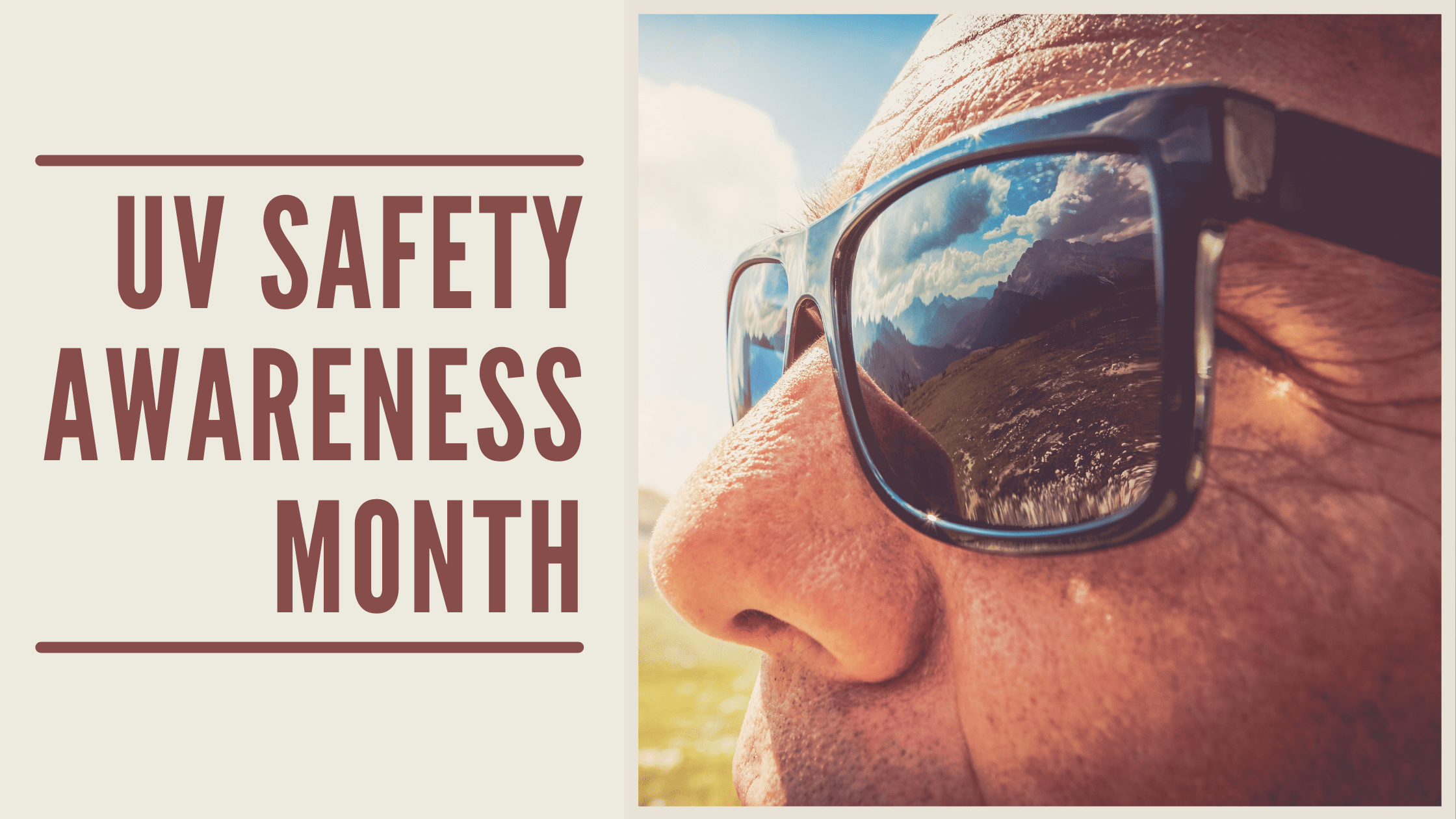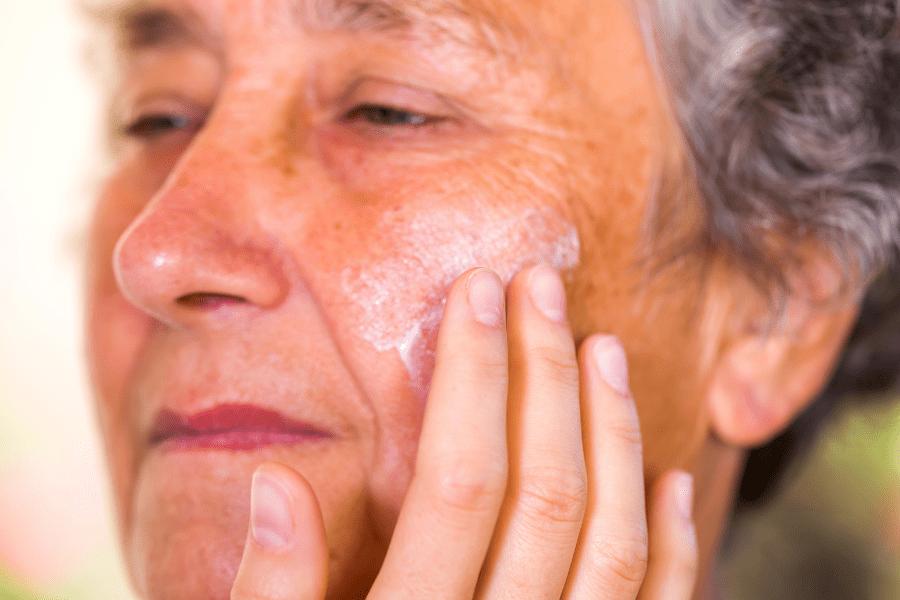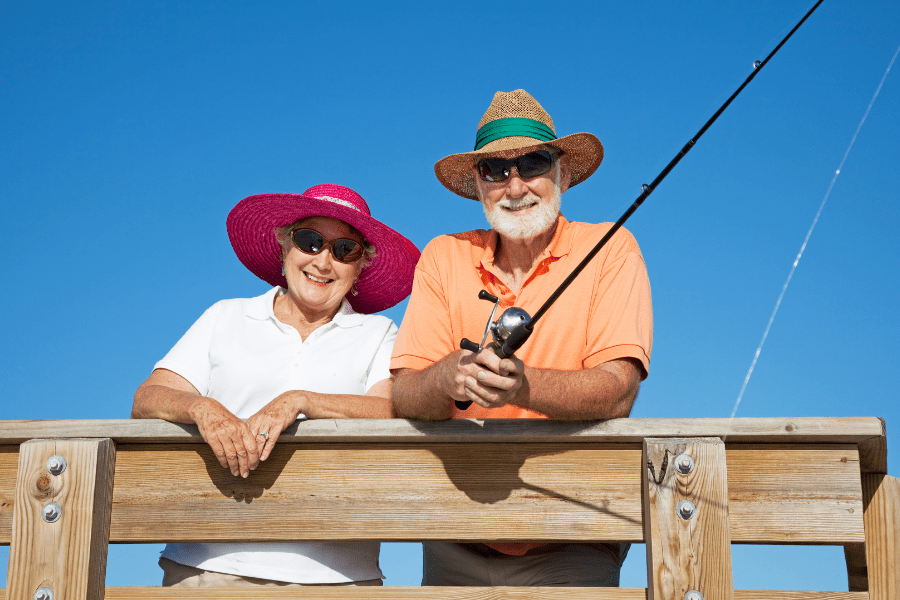
UV Safety Month occurs each July and promotes awareness about the importance of sun protection. Keep reading to learn more about UV Safety Month and ways older adults can protect their health.
Updated March 1, 2023
July Is UV Safety Awareness Month
After spending all summer indoors due to the pandemic, It’s understandable why people are eager to spend more time outside this year. However, UV Safety Awareness Month is an excellent reminder to be proactive about sun protection — particularly when it comes to dangerous UV rays.
The Risk Of UV Rays To Older Adults
UV Safety Awareness Month is the perfect opportunity for family caregivers to talk to their loved ones about the dangers of UV rays, which include:
Premature skin aging, such as wrinkles, sagging, and loss of elasticity
Eye damage, cataracts, macular degeneration, or vision loss
Weakened immune systems
Skin cancer, which is the most common form of cancer, according to Cancer.gov
Protection from the sun and UV rays is critical, regardless of age. But it’s essential for older adults, who are twice as likely to develop skin cancer.
But what is it that puts seniors at risk? There are a few reasons, including:
- Older adults have thinner skin that doesn’t heal or recover as quickly as it once did.
- Decades of cumulative exposure
- Lowered autoimmunity as a result of aging, which affects the body’s ability to fight off cancer cells
- A higher number of harmless skin lesions, moles, or other types of skin changes can make it challenging to identify malignant spots before it’s too late
Fortunately, the effects of UV ray exposure are preventable — you need to take preventative measures.
Types Of UV Rays
Did you know that the sun radiates more than one UV rays? There are three kinds: UVB, UVA, and UVC.
Although the ozone layer protects us from UVC rays, it doesn’t stop them from reaching the earth’s surface. When they do, it causes freckling, wrinkles, sunburn, skin cancer, and more.
According to Unicity Healthcare, 86% to 90% of skin cancer develops due to UV exposure. And as the ozone layer continues to disappear, we will face increasingly higher rates of UVB exposure. Consequently, that can increase the detrimental effects of sun exposure. So that’s why wearing sunscreen, hats, and other sun protection outdoors is vital.
But even if your loved one stays inside, protection is still needed. UVA rays can still pass through some types of glass (such as car windows), causing wrinkles, spotting, and cancer. This can happen even if you don’t feel or get a sunburn.
UV Safety Awareness Month Tips For Seniors
UV Safety Awareness Month is all about raising awareness about the dangers of UV exposure, so here are a few ways seniors can stay safe all year long:
Stay Inside During The Brightest Parts Of The Day
Scorching temps and UV rays are double trouble, especially for older adults. So during the summer, urge your parent to stay inside from 10 AM to 4 PM.
That doesn’t mean they have to stay cooped up watching TV, however. Instead, they can enroll in a class that takes place during that time of day, enjoy coffee or tea with company, or treat themselves to their favorite lunch.

Wear Sunscreen
Many people think sunscreen is just for the spring and summer, but UV exposure can happen all year round. People of every age should wear at least SPF 30 sunscreen and reapply every two hours for maximum protection. If you are perspiring or in the water, consider applying every hour.
Cover Up
While no one wants to wear long sleeves or pants when temps are burning up, it’s the best way to avoid the long-term effects of UV exposure.
Try to wear light-colored, lightweight materials that don’t absorb as much sunlight. Sunglasses and hats are another good way to keep yourself and your loved one protected as they can prevent exposure from rays that bounce off the sand and other reflective surfaces.

Consult A Dermatoligst
Basal cell carcinoma (BCC) and squamous cell carcinoma (SCC) are two types of skin cancers that typically only develop in seniors. Additionally, deadly melanoma is ten times as likely to develop in adults 40 or older than those under 40.
Try to get your parent to visit a dermatologist every year for a comprehensive assessment. Between appointments, watch for new freckles, spots, or moles, and if you see something new, call their dermatologist as soon as possible.
Check Prescription Side Effects
Some types of medicine, including anti-depressants, antibiotics, water pills, and more, can cause increased sun sensitivity. Review your parents’ medication to see if the side effects increase their risk of UV exposure.
MeetCaregivers Supports UV Safety Awareness Month
UV Safety Awareness Month promotes awareness of sun exposure and keeps people of every age safe. Although skin cancer is common among older adults, it’s among the easiest to prevent. Check out other ways to promote healthy skin for seniors for more ideas.
Our qualified professionals are ready to help your loved ones with any needs, from transportation to activities of daily living and more. Contact us online or call 1 (888) 541-1136.
For more resources, visit the Blog.
- “Helping Seniors Stay Safe This Summer During UV Safety Month.” Unicity Healthcare, 13 July 2018, www.unicityhealthcare.com/helping-seniors-stay-safe-summer-uv-safety-month/.
- “UV Awareness Month: Keeping Seniors Safe in the Sun: Five Star Senior Living.” UV Awareness Month: Keeping Seniors Safe in the Sun | Five Star Senior Living, www.fivestarseniorliving.com/blog-post/uv-awareness-month-keeping-seniors-safe-in-the-sun.
- “UV Awareness Month: What Seniors Should Know: Five Star Senior Living.” UV Awareness Month: What Seniors Should Know | Five Star Senior Living, www.fivestarseniorliving.com/blog-post/uv-awareness-month-what-seniors-should-know.
